photo by kikuko Usuyama
Considering if there was a “soul” in a fried chicken sold at a convenience store has been the reason for starting this exploration and artistic production. The meat is derived from a chicken which should have been living equivalent to other animals, but it is treated as a provision consumed as food rather than life. Even the same chicken would be treated very differently dependent on either it is dealt as a bird in the zoo or a meat for food.
So I visited an expert of bird science, Prof. Masaoki Tsudzuki (Hiroshima University), and asked if I could extract genomic DNA from a fried chicken, and if any information is available on the genetic characteristics such as looking, individuality of the bird when she or he was living. Then, I learned the relevant information from the chicken DNA to interpret is limited compared with mammals, since genetic markers and functional genomics have not been well established in chickens. However, he suggested that sex-determination is reliably possible.
One of genetic advantages to have sexual difference is to accelerate genetic diversity in population of species by shuffling genetic information through sexual reproduction. By doing so, it enables species to be more adaptive to different environments and to reduce the risk of extinction. Thus, sex difference can be taken as one of the most significant elements constructing genetic identity of each individual of sexually reproductive organisms.
It was a mysterious blind spot that having not been conscious of much about sex of a chicken meat, though I often care about the producing area and breed of the meat when I buy and eat them. To explore its possible aesthetic implications, we collected many chicken food samples, extract their genomic DNA and determined the sex. The process and results of the experiment are published book sets and made postcards.
Cooperation:
Hideo Iwasaki (Professor, Department of Electrical Engineering & Bioscience, TWIns, Waseda University; Director, metaPhorest)
The Iwasaki lab members (Waseda University), especially Siryu Kirie and Daichi Itaki (graduate students)
metaPhorest members
Masaoki Tsudzuki (Professor, Graduate School of Biosphere Science, Hiroshima University)
Atsushi Takenouch (Graduate student at the Tsudzuki lab, Hiroshima University)
So I visited an expert of bird science, Prof. Masaoki Tsudzuki (Hiroshima University), and asked if I could extract genomic DNA from a fried chicken, and if any information is available on the genetic characteristics such as looking, individuality of the bird when she or he was living. Then, I learned the relevant information from the chicken DNA to interpret is limited compared with mammals, since genetic markers and functional genomics have not been well established in chickens. However, he suggested that sex-determination is reliably possible.
One of genetic advantages to have sexual difference is to accelerate genetic diversity in population of species by shuffling genetic information through sexual reproduction. By doing so, it enables species to be more adaptive to different environments and to reduce the risk of extinction. Thus, sex difference can be taken as one of the most significant elements constructing genetic identity of each individual of sexually reproductive organisms.
It was a mysterious blind spot that having not been conscious of much about sex of a chicken meat, though I often care about the producing area and breed of the meat when I buy and eat them. To explore its possible aesthetic implications, we collected many chicken food samples, extract their genomic DNA and determined the sex. The process and results of the experiment are published book sets and made postcards.
Cooperation:
Hideo Iwasaki (Professor, Department of Electrical Engineering & Bioscience, TWIns, Waseda University; Director, metaPhorest)
The Iwasaki lab members (Waseda University), especially Siryu Kirie and Daichi Itaki (graduate students)
metaPhorest members
Masaoki Tsudzuki (Professor, Graduate School of Biosphere Science, Hiroshima University)
Atsushi Takenouch (Graduate student at the Tsudzuki lab, Hiroshima University)
コンビニの店頭で売られているフライドチキンに魂はあったのか、と考えたことが本研究・制作を開始したきっかけになっている。他の動物と同等の生命としての情報を持っているはずの鶏肉であるが、生命というよりただ食料として消費されていくモノとして扱われているように見えるのが実情である。また同じ鶏でも観賞用として飼われている鶏と食品用になってしまった鶏は扱いに大きな差が生まれている。
そこでフライドチキンのDNAからどこまで生きていた時の情報(たとえば容姿など)が得られるか、広島大学家畜育種遺伝学研究室の都築政起先生にお話をお伺いした。鶏のDNAから分かる情報(たとえば生前の性質)というのは、研究人口の多い哺乳類に比べて圧倒的に少なく、現在分かる情報の一つが性別であると教えて頂いた。
性別を持つことの利点は、有性生殖を介して遺伝情報の多様な組み合わせを可能にし,集団内の遺伝的多様性を爆発的に増加させることにある。これによって,種としての適応度が増し,異なる環境への適応の幅を増大させ,種の絶滅を防ぐ効果があると言われる。性別は,有性生殖を行う生物にとって、各々の個性を構成する情報の中でもとりわけ大きな要素である。
普段何気なく購入し食している鶏肉の、生産地や品種を気にすることはあるのに、性別についてあまり意識してこなかったということは不思議な盲点であった。性判定結果のデータを収集することで何か見えてくることがあるのではないかと考え、チキンのサンプルから性別を判定するという実験を続けた。実験の過程と結果はブックセットやポストカードで展開している。
協力:
岩崎秀雄(早稲田大学大学院先進理工学研究科教授、metaPhorest主宰)
切江志龍(岩崎研究室M2、metaPhorestメンバー)
板木大知(岩崎研究室D3)
岩崎研究室に所属の学生の皆様
metaPhorestの皆様
都築政起(国立大学法人 広島大学大学院 生物圏科学研究科 家畜育種遺伝学研究室教授)
竹之内惇(広島大学 生物圏科学研究科博士課程後期家畜育種遺伝学研究室)
岩崎秀雄(早稲田大学大学院先進理工学研究科教授、metaPhorest主宰)
切江志龍(岩崎研究室M2、metaPhorestメンバー)
板木大知(岩崎研究室D3)
岩崎研究室に所属の学生の皆様
metaPhorestの皆様
都築政起(国立大学法人 広島大学大学院 生物圏科学研究科 家畜育種遺伝学研究室教授)
竹之内惇(広島大学 生物圏科学研究科博士課程後期家畜育種遺伝学研究室)
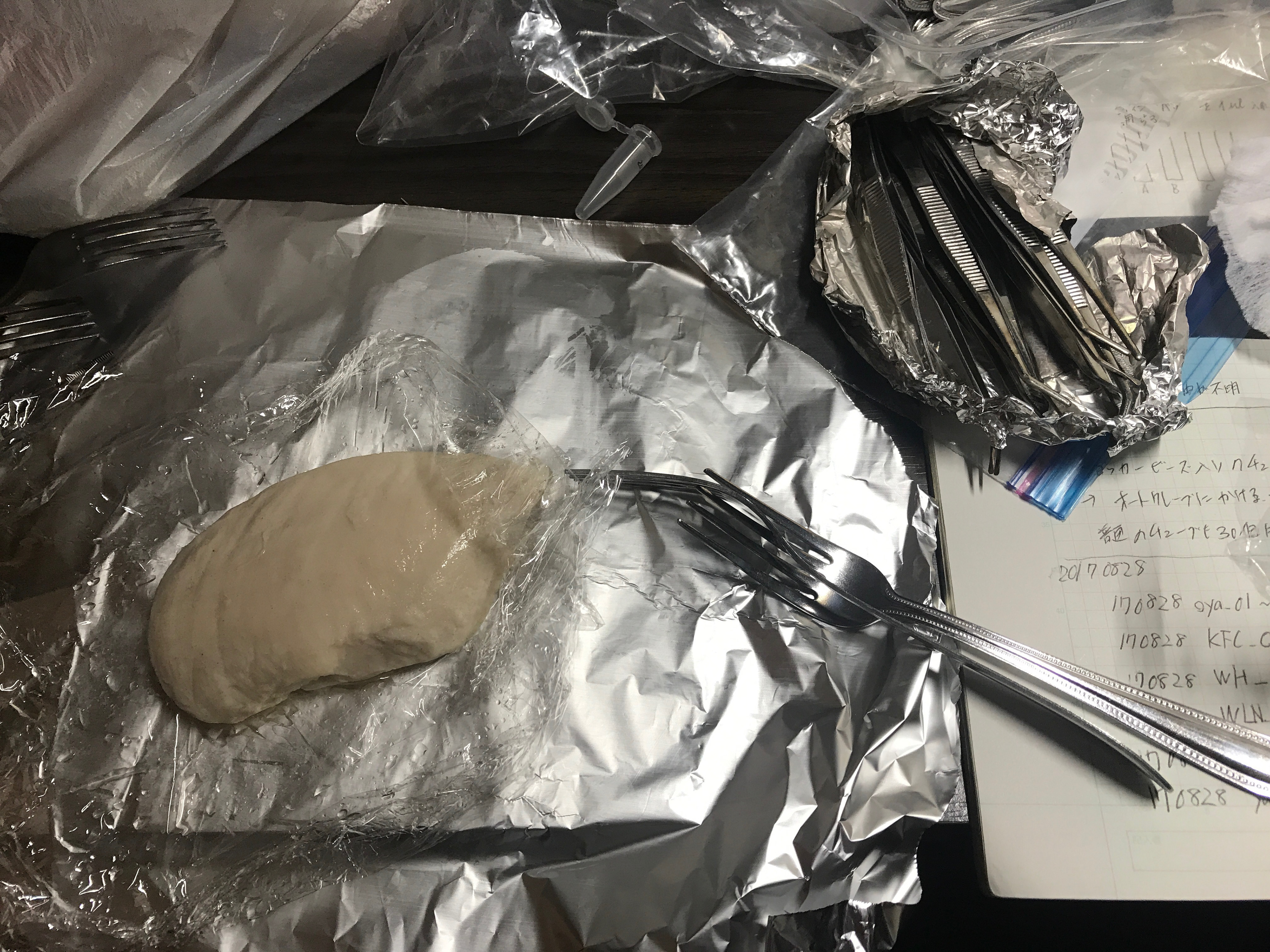
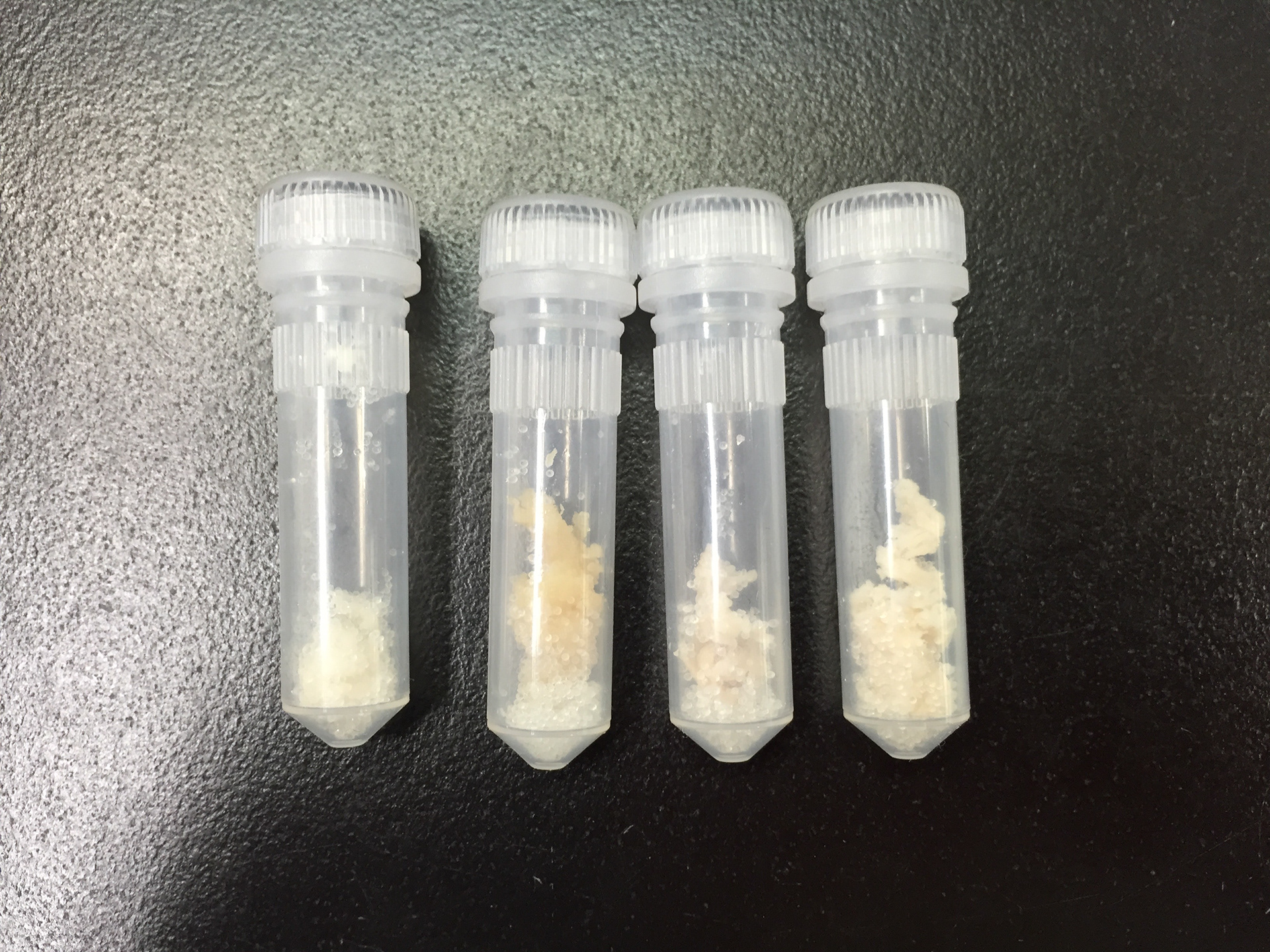
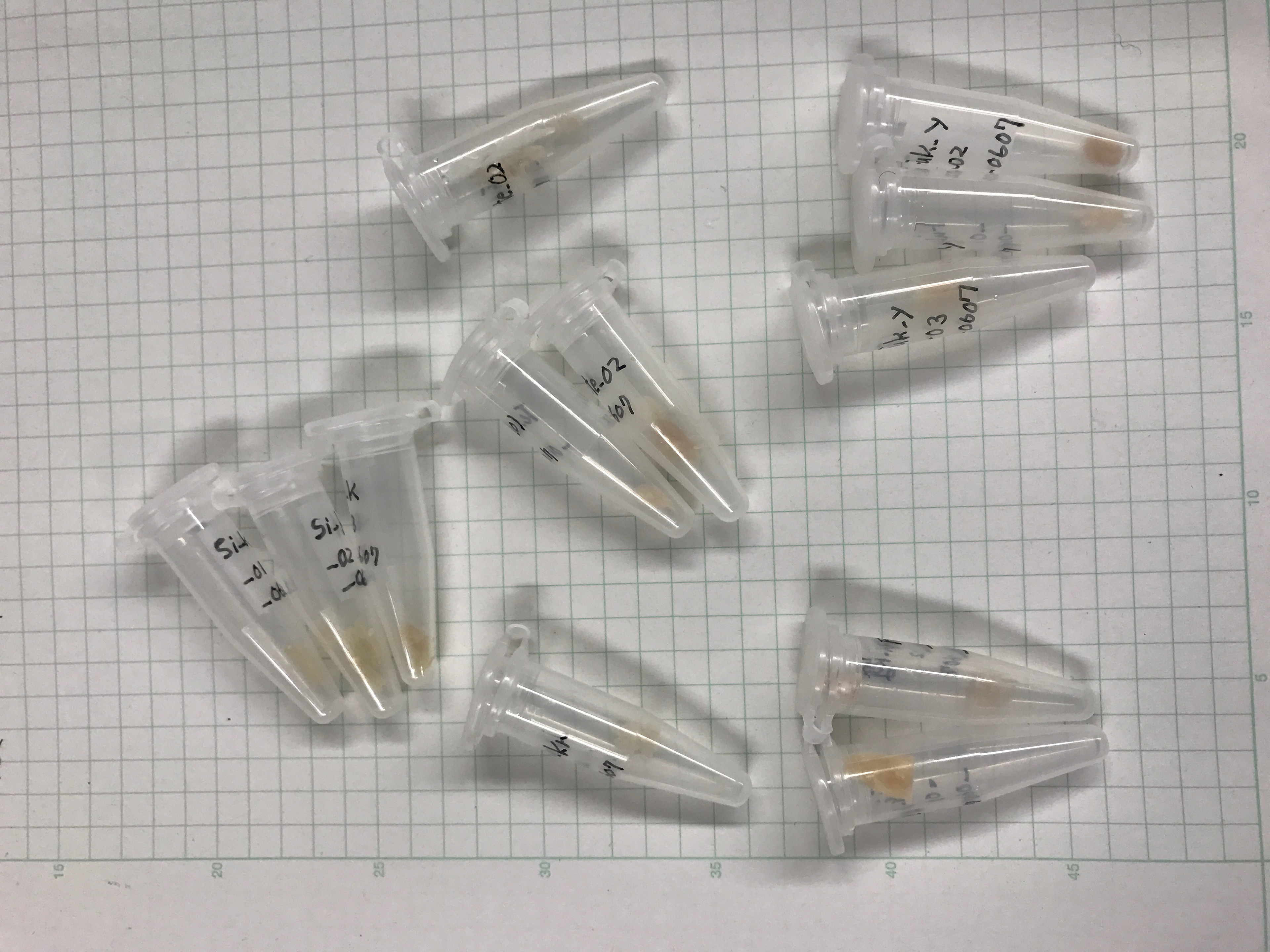
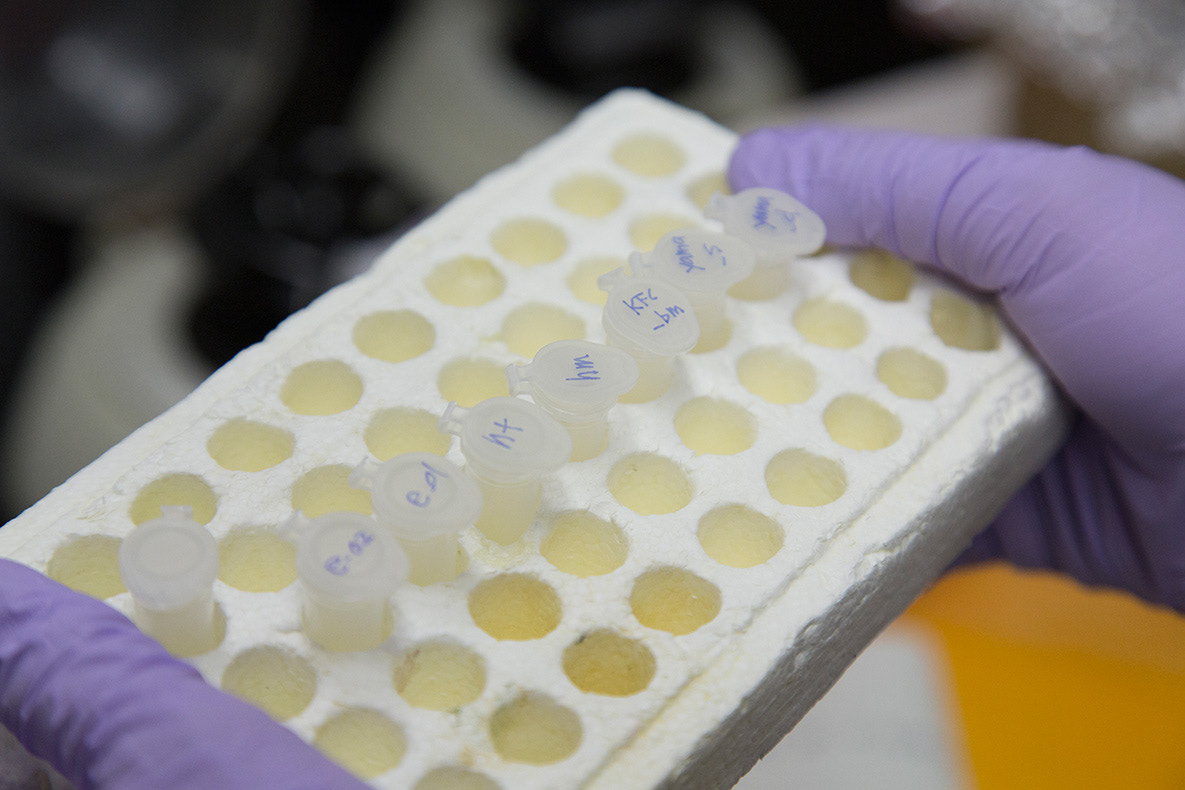
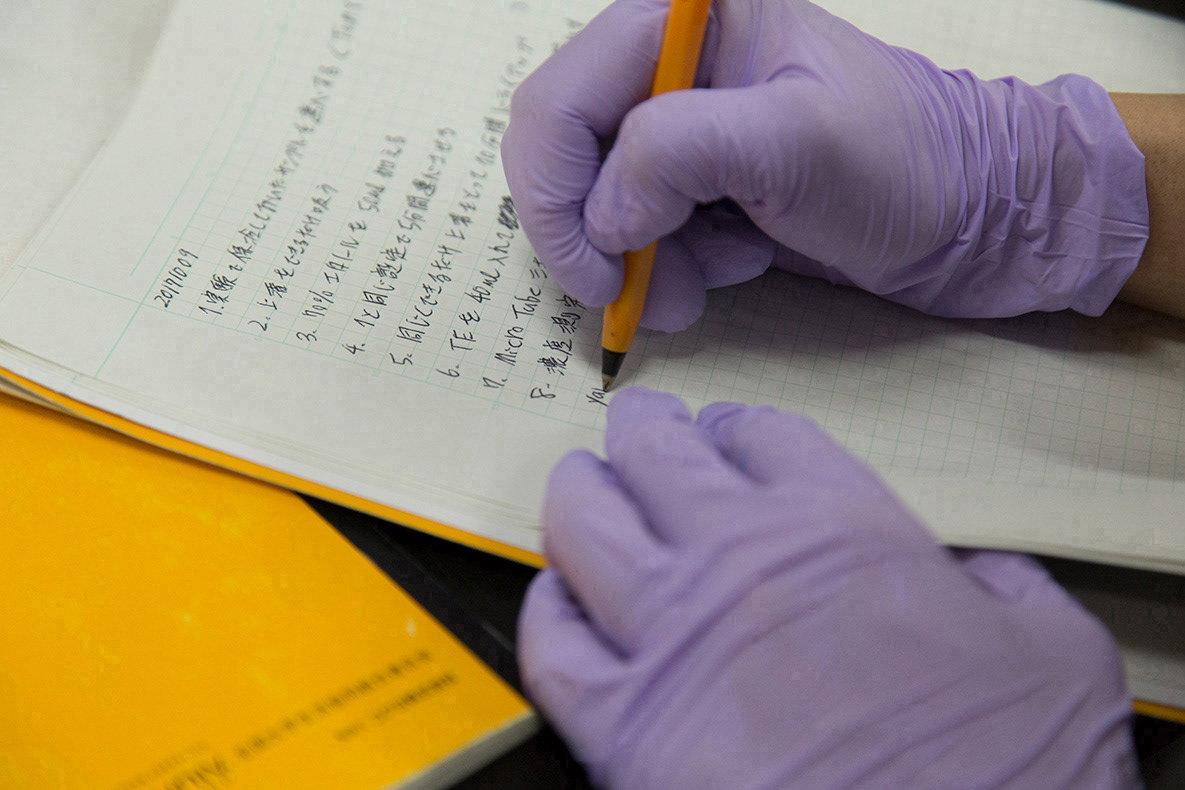
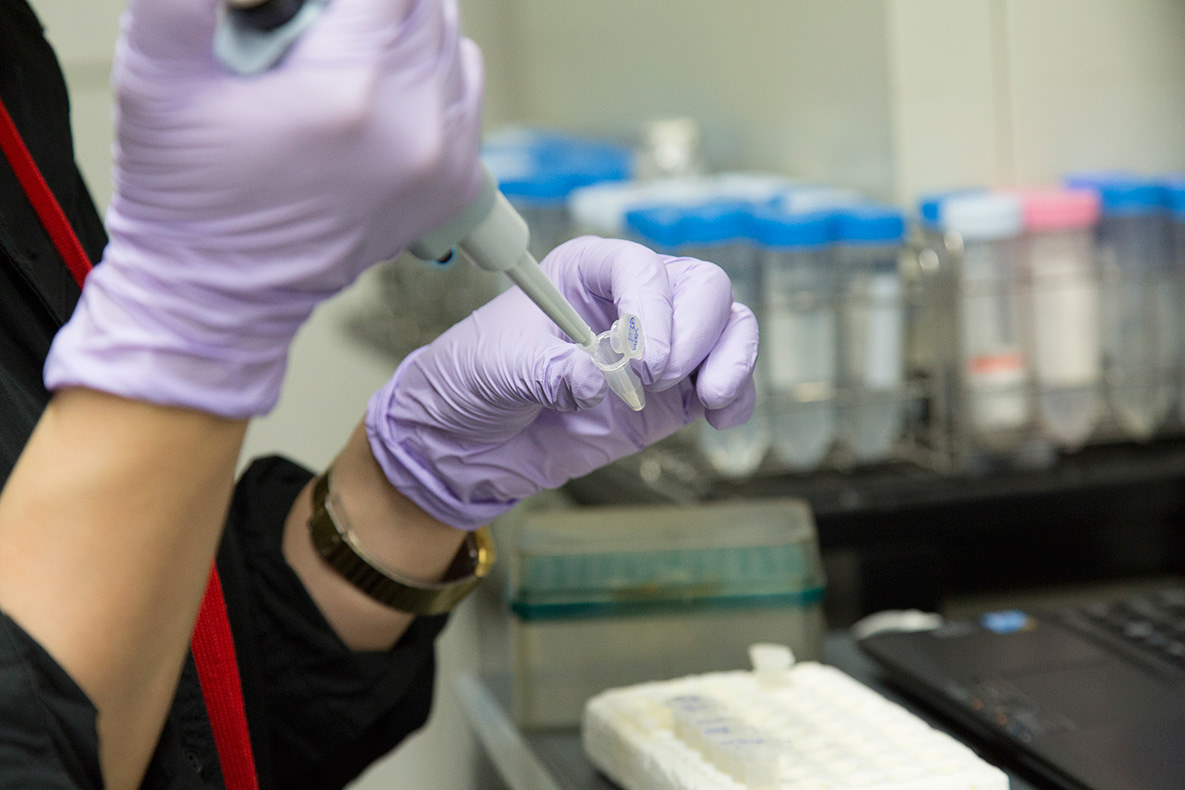
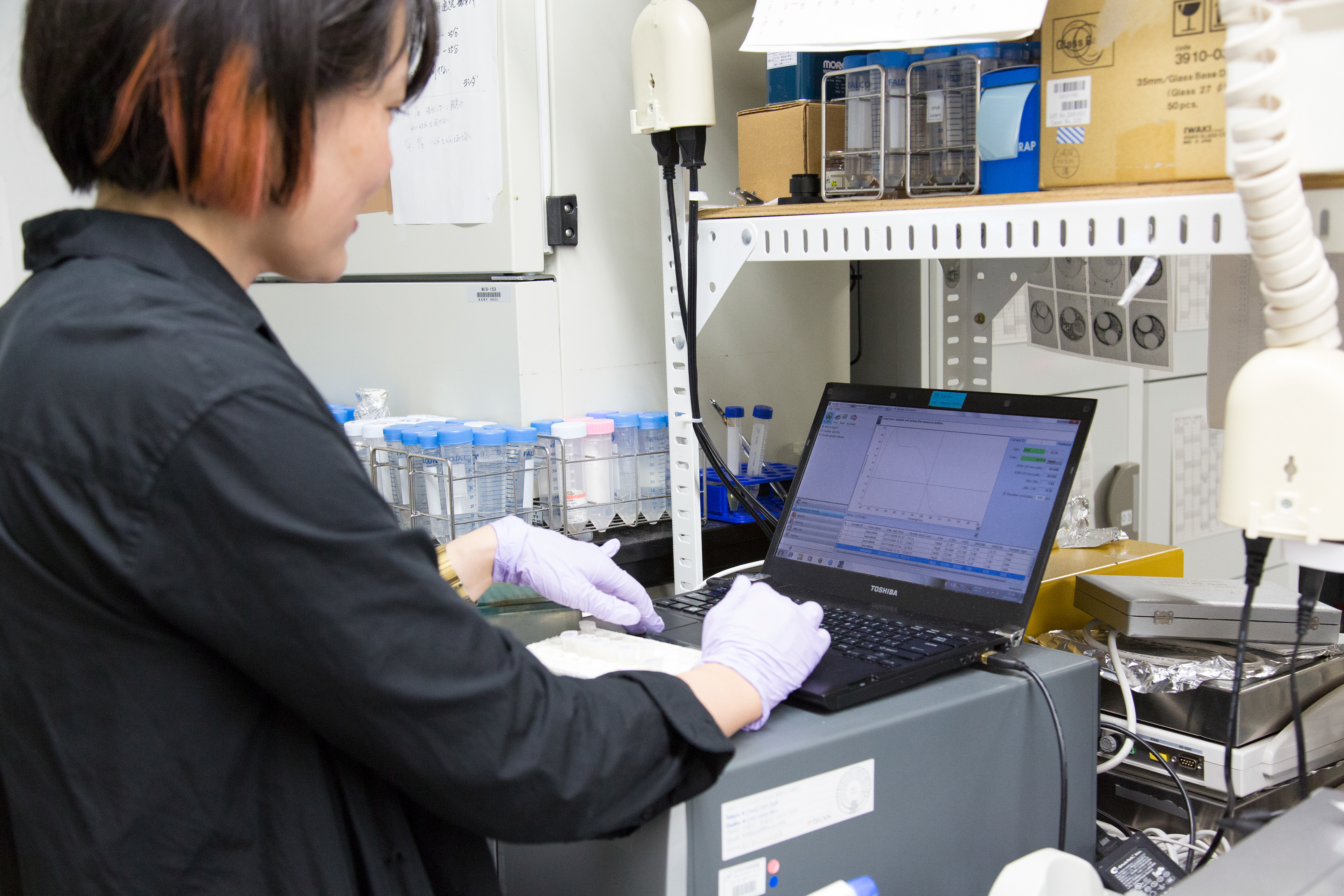

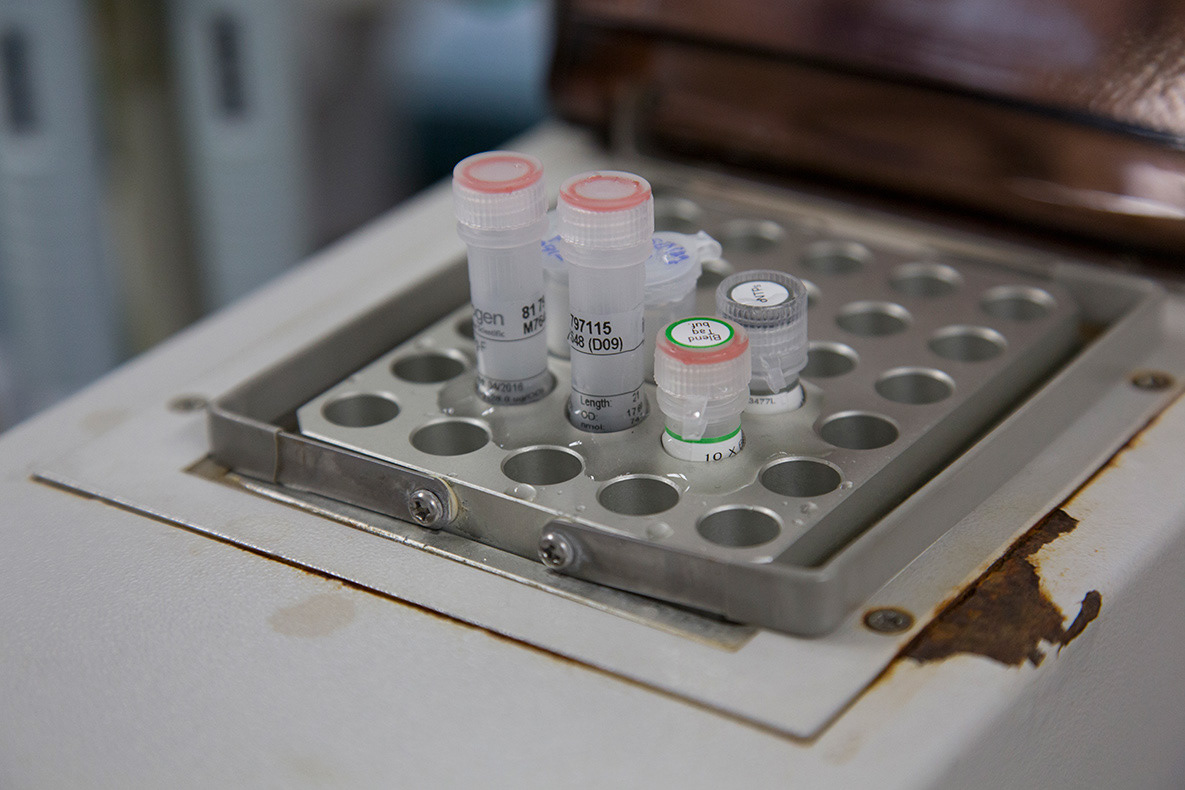
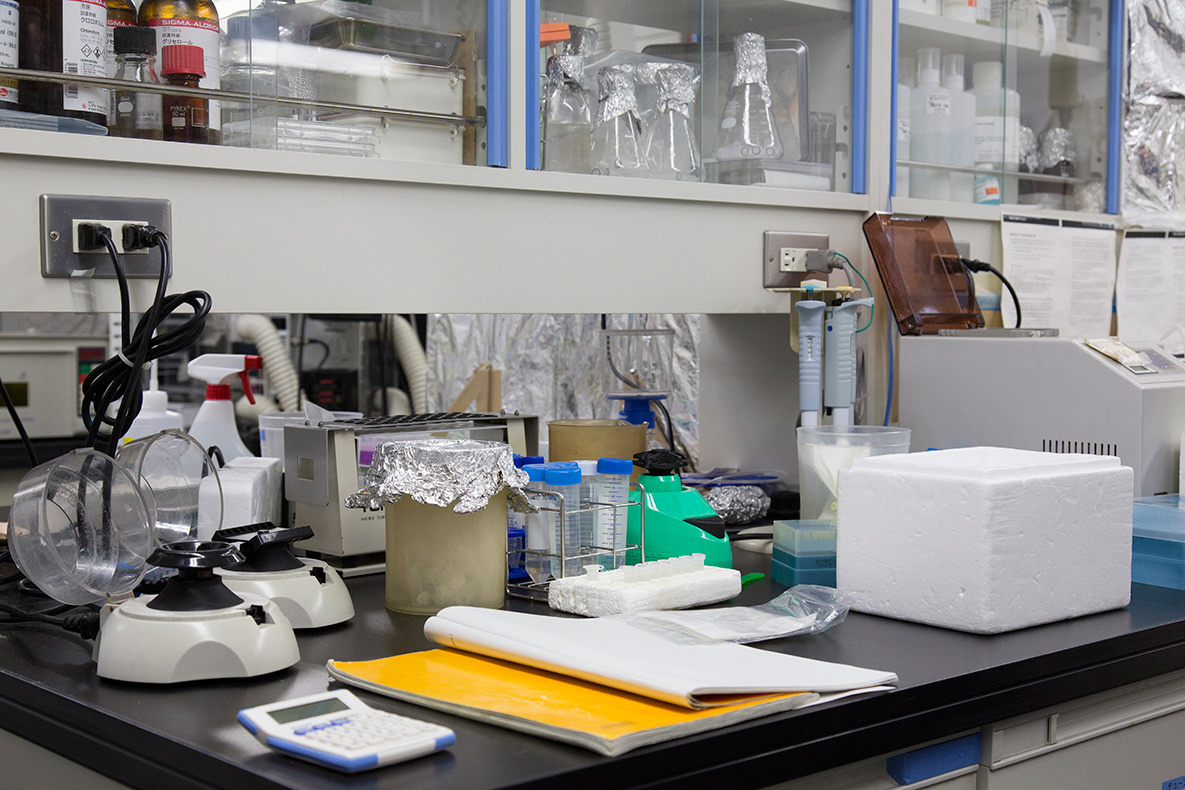
photo by kikuko Usuyama (and me)
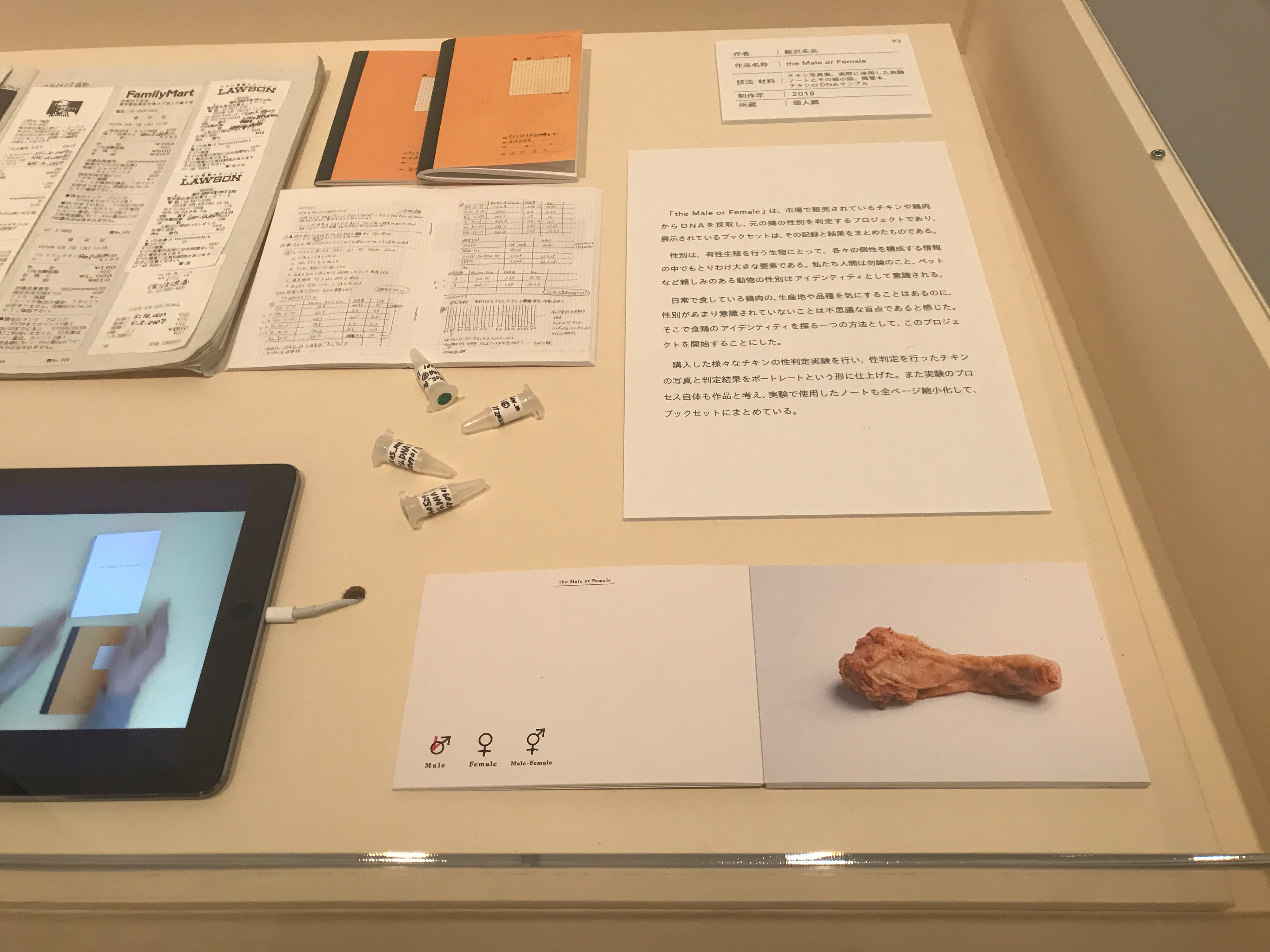

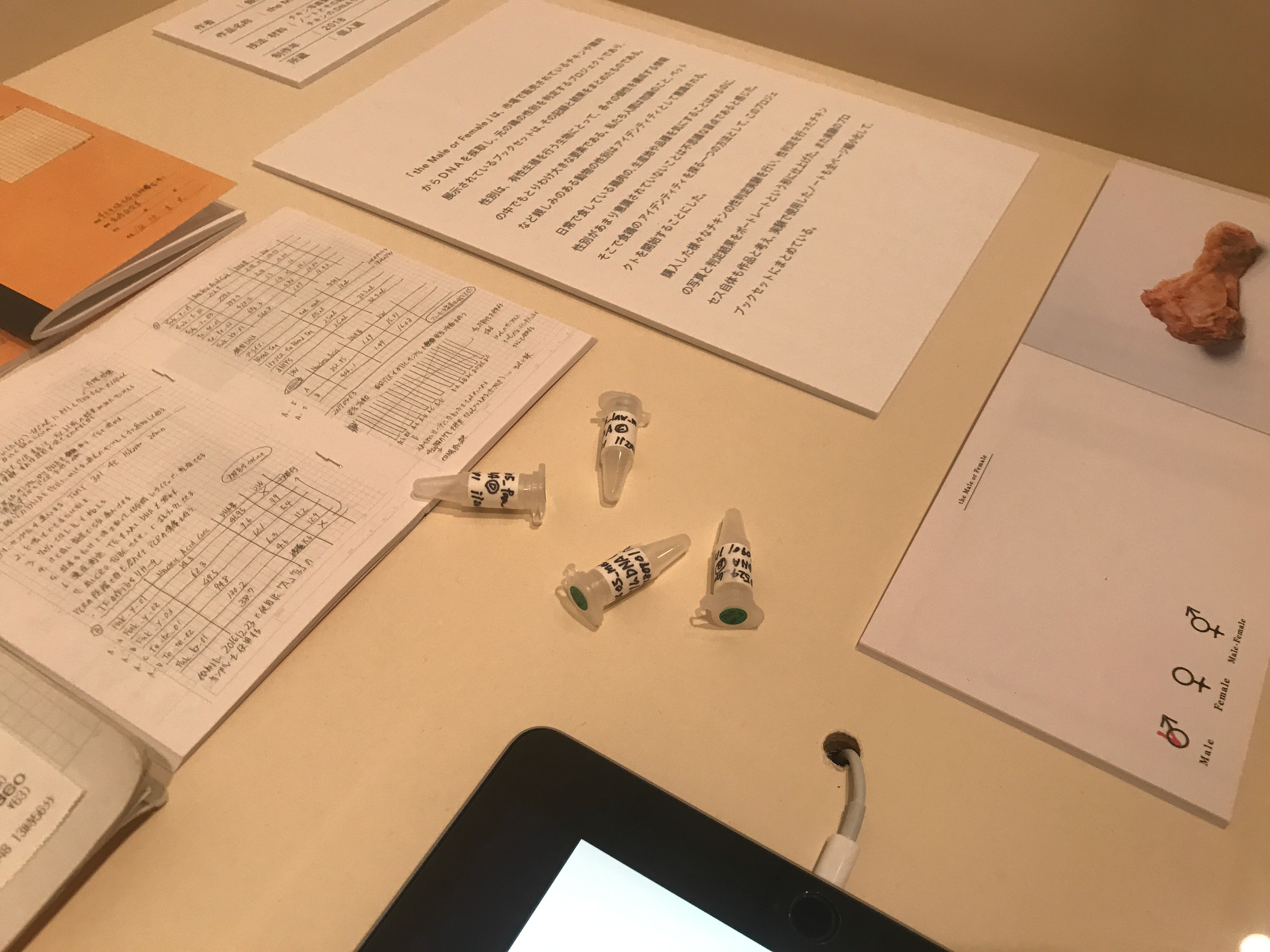
「芸術ア ー トの保存・修復 ― 未来への遺産」展示風景